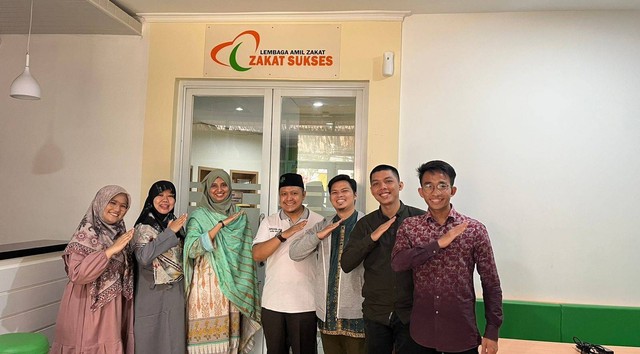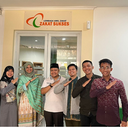Tentang KamiPedoman Media SiberKetentuan & Kebijakan PrivasiPanduan KomunitasPeringkat PenulisCara Menulis di kumparanInformasi Kerja SamaBantuanIklanKarir
2025 © PT Dynamo Media Network
Version 1.101.0
Konten dari Pengguna
FEB UIII Students Ready to Bring The Maggot Program to The International Level
5 April 2023 6:56 WIB
Tulisan dari suhail eresmair tidak mewakili pandangan dari redaksi kumparan

ADVERTISEMENT
Content by : Shellvy Lukito (Universitas Islam Internasional Indonesia)
Economics and Business Student Association (EcoBiz), Faculty of Economics and Business (FEB), International Islamic University of Indonesia (UIII) established a partnership with the Amil Zakat Institution (LAZ) Zakat Sukses. EcoBiz is prepared to introduce and spread the creative economy models initiated by Zakat Sukses internationally. Maggot cultivation is a distinct program that merits development.
ADVERTISEMENT
LAZ Zakat Sukses Program Manager. Muhammad Rizki Akbar believes that maggot cultivation can be replicated in several locations to become a profitable activity that can boost the community's economy. "Maggot cultivation has only begun since 2022. Currently, one mustahik in Cilodong sub-district has been Successful. We hope that this program can be replicated in other Depok City sub-districts to create empowered communities and transform them from mustahik (zakat receiver) to muzakki (zakat givers)," hoped Rizki last week at the Zakat Sukses office in Depok.
Saba Ansari, a member of EcoBiz from Pakistan who was also present to observe this program, stated that it is worthwhile to develop and disseminate this program in developing nations. This program is quite effective and should be expanded because it has the potential to benefit the local economy. It will be more promising if assistance is provided so that the program can be sustained, according to the recipient of a doctoral scholarship in economics at FEB UIII.
ADVERTISEMENT
EcoBiz External Deputy Shellvy Lukito added the strategic value of maggot cultivation due to its economic value. "This cultivation can convert organic waste that is typically discarded into cash," she explained.
According to data released by the Ministry of Environment and Forestry, waste collected in 162 regencies/cities across Indonesia in 2022 consists of food waste (40.9%), plastic waste (18.6%), wood waste/twigs/leaves (13.5%), paper/cardboard (10.6%); and rubber/leather, cloth, glass, metal and other waste (16.6%).
According to the Environment and Sanitation Service (DLHK) for the city of Depok in 2022, approximately one thousand tons per day will come from household waste and traditional markets in Depok City. "This is a serious problem because it can cause environmental and health side effects," stated Shellvy.
With maggot cultivation, problematic waste can be converted into rupiah. Maggot or the larvae of the insect Harmetia illucens comes from black flies (Black Soldier Fly) consuming organic waste. This insect does not cause disease and has a fairly high protein content between 40 and 48%.
ADVERTISEMENT
According to the OJK and the BSF Indonesia Association, the economic potential of maggot farms is IDR 6.39 trillion per year and can employ up to 1.53 million people. In addition to maggot cultivation, Zakat Sukses also raises mini native chickens, which generate 20 high-quality eggs per day.

